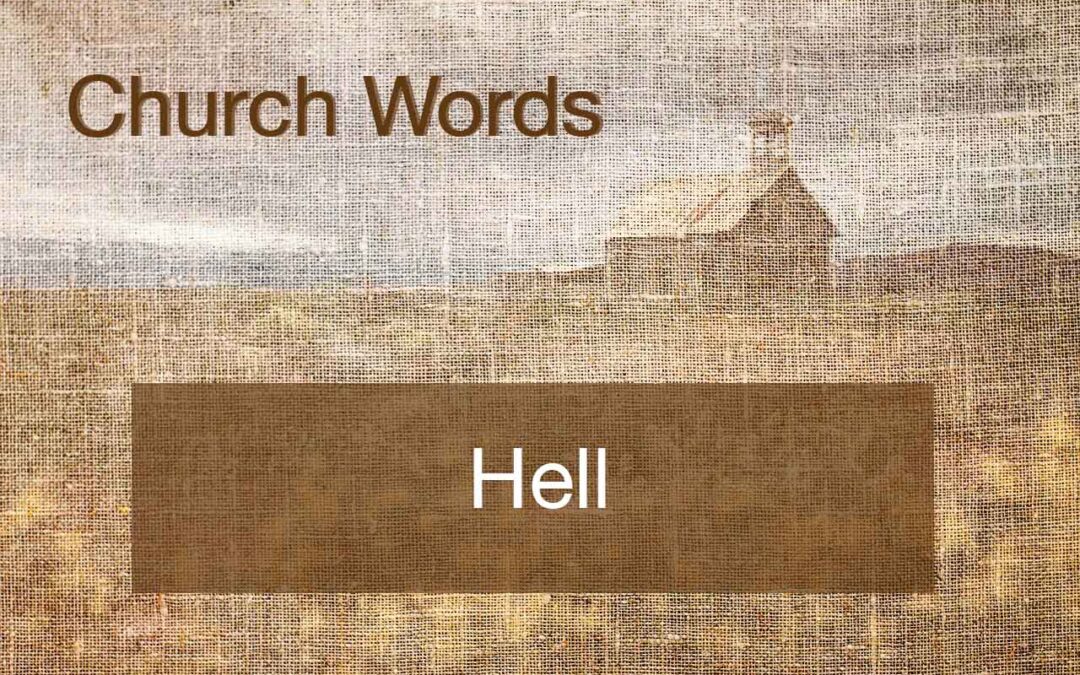According to Scripture hell is a place of eternal punishment for the wicked dead and those who have heard and rejected the gospel. Support for both heaven and hell requires belief in the supernatural and originates from belief in an afterlife or, to be completely accurate a life after life. It underpins the very notion of a just God. If there is not a price to be exacted for evil committed in this life, how can God be good?
Hell is where disobedient angels are being held awaiting punishment (2 Peter 2:4). And it will be shared with people who have rejected Jesus and are still under penalty of their sin. “He will punish those who do not know God and do not obey the gospel of our Lord Jesus. They will be punished with everlasting destruction and shut out from the presence of the Lord and from the majesty of his power.” (2 Thessalonians 1:8-9 | NIV)
The Bible sometimes refers to hell as “death” or the “second death. “But the cowardly, the unbelieving, the vile, the murderers, the sexually immoral, those who practice magic arts, the idolaters and all liars—they will be consigned to the fiery lake of burning sulfur. This is the second death.” (Revelation 21:18, | NIV) Good, but unbelieving people are destined to spend eternity with some really bad ones. Jesus spoke of “eternal punishment” (Matthew 25:46) and in Mark 9:43 he cautions about “hell, where the fire never goes out.”
Most evangelical Christians believe eternal consignment and suffering in hell awaits the unbelieving and the sinner. And there is considerable evidence to support them (2 Thessalonians 1:9, Matthew 3:12, 5:22, 13:41-42, 50, 23:33, 25:41, 46, Hebrews 10:27, Jude 1:7, Revelation 14:11, ) There are some people, (universalists), who believe everyone will eventually be saved, but Scripture doesn’t support that view. It is a sort of theological corollary to “everyone gets a trophy.”
Another view that does have some biblical support holds that the soul and body will ultimately be destroyed (annihilationists). Scriptures supporting that view includes Psalm 145:20, Matthew 7:13,10:28, John 3:16, Revelation 21:8, 20:13-15. The problem with that position, it seems to me, is it ignores God’s justice and leaves one asking why he would resurrect the dead only to eventually destroy them.
In the Old Testament the word often translated “hell” means the grave. Darkness, gloom, and separation from God is another implication of the word. There is little doubt what it means in the New Testament. Other terms for hell are destruction, death, and the second death. The notion of Hades muddies the water a bit. Scripture appears to support the idea those who reject Jesus go to Hades, an intermediate state, where they suffer torment until the time they appear before the great white throne. After that, they are cast into the lake of fire for eternal damnation.
Two of the pastors most instrumental in what came to be known as the Great Awakening in the 1730’s and 40’s were George Whitefield and Jonathan Edwards. Edwards preached a sermon in Enfield, CT on July 8,1741 entitled, “Sinners in the Hands of an Angry God.” It painted a horrific picture of what awaited those who died separated from God. He reminded his listeners that life is fragile and uncertain and stressed the importance of knowing what awaited them after death.
Edwards warned his listeners and encouraged them to accept God’s gift of grace. They responded to his plea and turned to Jesus in large numbers. Today we don’t hear much preaching about hell. In fact, I polled some of my believing friends; asking if they could recall a sermon on hell being preached in the past five years. None of them could. Sadly, too many churches offer a pardon to people who do not even know that they are on death row. Yet most of us, followers of Jesus and irreligious, alike, believe in hell. But, like Edwards’s listeners, few assume it to be their eternal fate.
According to a Pew Research poll, 58 percent of Americans believe in a literal hell. Evangelical Protestants and Historically Black Protestants have the highest percentage of believers, 82 percent. Muslims are next with 76 percent. A greater percentage of women than men believe in hell. The greatest percentage of believers have high school diplomas or less. Apparently, the more educated one is the less inclined he or she is to believe what Jesus believed and taught.
Along with education, income also influences belief. As income increases, the percentage of believers drops. The evidence would appear to indicate that there is something to what Jesus said about how hard it can be for the rich to enter heaven. Yet his message of eternal hope is intended for all people everywhere. “The Lord is not slow to fulfill his promise as some count slowness, but is patient toward you, not wishing that any should perish, but that all should reach repentance. (1 Peter 3:9 | ESV)
Whether you believe in hell or not, Jesus believed in it and spoke more about it than anyone else in the Bible.

Recent Comments